- Andersons’ consultants are continuing to support their clients during the pandemic. If you require any advice, please contact your usual consultant, or the office on 01664 503200 or email [email protected].
- The Future Farm Resilience Fund opens this month (August) in England and will run until March 2022. It is designed to provide business support to farmers during the early years of the Agricultural Transition. Nineteen organisations have been awarded funding to deliver a variety of business support, which will be free of charge. This initial phase will be fed-in to design the final scheme which will run from 2022 to 2024. Andersons, in partnership with Ricardo are one of the organisations delivering support and will offer one-to-one farm resilience reviews, resilience planning webinars and access to online skills and training. If you would like some free business support to help plan for the future, more information can be found at https://www.eventbrite.co.uk/o/ricardo-future-farming-resilience-fund-29430290977 or contact one of our consultants to sign up.
- Defra has confirmed the new Farming Investment Fund (FIF) will open for applications in October this year. This is for capital items and is expected to be similar to the previous Countryside Productivity Small Grant scheme, where a 40% grant was available for pre-identified capital items.
- A new Welsh Agriculture Bill is to be laid before the Senedd this autumn. It will contain the powers to enact the new Sustainable Farming Scheme (SFS). The Welsh Government has suggested the new support scheme should start in 2024 (although this is not 100% certain). The Bill is unlikely to give details of how the SFS will work in practice, this is still being worked on. Instead, it will set the legal framework under which the scheme will operate.
- It was announced by the AHDB at the Cereals Event that the levy board was working in collaboration with Defra to produce an industry-standard carbon calculator for farming. The aim is to have a tool available for the start of 2023. There is a plethora of different carbon calculators being used in UK farming at present, all with different methodologies and producing different results. In addition, an industry group has been granted funding to develop a Farm Soil Carbon Code. This would be similar to the existing Woodland and Peatland Codes, providing a set of formal protocols that would allow farmers to quantify and verify reduced greenhouse gas emissions and/or soil carbon capture as a result of adopting regenerative farming practices. The lack of a formal standard is one of the issues holding back the development of a market in carbon offsetting in farming.
- Defra and Natural England have announced the potential creation of two new AONBs, plus the extension of two existing ones. The new ones are a Yorkshire Wolds AONB and a Cheshire Sandstone Ridge AONB. The extensions are to Surrey Hills and the Chilterns. Unhelpfully, the statement (see https://www.gov.uk/government/news/natural-england-announces-landmark-new-programme-for-protected-landscapes) gives no details on the precise areas to be covered by the designations. A consultation is promised later in the year.
- The second part of the National Food Strategy has been released. Whilst the recommendation of a sugar and salt tax made headline news, other recommendations directly affect farming more. Such as guaranteeing the budget for Agricultural payments until at least 2029 and ring fencing some of the money to put towards schemes which would fund taking out of production 20% of the least productive land to create environmentally friendly landscapes.
- British Sugar has announced the beet price for the 2022 season will be a minimum of £25. This compares to £21.10 being paid for the current crop (under one-year contract terms). The idea behind the company releasing an ‘indicative’ price before negotiations are complete seems to be to persuade growers to keep beet in the rotation as they plan their cropping decisions. The NFU is holding out for a higher contract price. In recent years a contract price has not been announced until September.
- According to the AHDB’s 2021 Planting and Variety Survey, GB winter wheat plantings have recorded a year-on-year rise of 26% to 1,742K hectares. Every region recorded a rise in plantings. In contrast, the total GB barley area has recorded an 18% year-on-year fall to 1,119K hectares as growers ‘correct’ their rotations from their enforced spring cropping regime last season. The winter barley area rose 15% to 350K hectares, with spring barley plantings recording a 28% fall on the year to 769K hectares; still quite historically high. 58% of the GB barley area is of a malting variety. The area of oats has risen by 1%, whilst OSR plantings have fallen by a further 15% since last year. This makes the cropped area the lowest since 1989 (including spring OSR). Ironically, crops look good this year and those growing it look like being rewarded with a high gross margin so it may encourage a small resurgence of OSR for 2022.
- The UK potato crop escaped the storms which hit mainland Europe, but conditions are ideal for blight. New crop prices have been supported as stocks have been slow to the market. Easing of Covid-19 restrictions has seen an increase in demand for processing and chipping potatoes. The warm weather has helped demand for salad, but less so for maincrop packing types. The loss of data from AHDB means it is difficult to know the area planted in the UK. World Potato Markets initially assumed a 5% decline, but it may be less. Any decline would result in one of the smallest crops ever; an average yield would mean a crop of just over 5mt. Planting in Germany, France, Belgium and the Netherlands is estimated to be down by 4.5% to less than 500,000ha, with up to 20,000ha impacted by storms, although some should be salvageable.
This month’s Spotlight looks at the latest information released on the Sustainable Farming Incentive (SFI). This is the first component of ELM. This initial phase of SFI will open for applications in 2022 Click Here for further information.
If you would like more detail on the topics covered above as well as additional articles on UK farm business matters, why not subscribe to Andersons’ AgriBrief Bulletin? Over the course of each month, we give a concise and unbiased commentary on the key issues affecting business performance in the UK agri-food industry, and its implications for farming and food businesses. Please click on the link below for a 90-day free trial:



